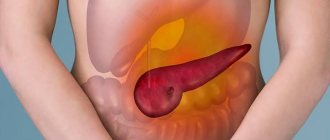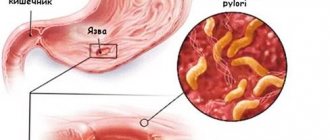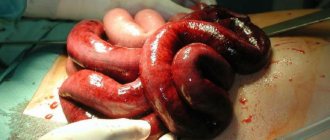A person can experience a wide variety of sensations. Tingling like needles all over the body: arms, legs, back and other parts of the body is one of the most unusual and unpleasant. This may be a signal of health problems, following which you need to contact a professional.
The mechanism of stabbing sensations in the limbs and causes
Each person experienced a feeling of piercing goosebumps throughout the body. There is a clinical term for this sensation - paresthesia. It is often accompanied by a number of additional symptoms:
- the skin becomes numb and cold temperatures appear in the hands and feet;
- muscle weakness;
- joint mobility decreases;
- itches and burns the skin;
- skin sensitivity decreases;
- there is a feeling of slight tickling or sharp pain.
Almost always, such symptoms are associated with poor circulation or decreased sensitivity of the nerves. Such, at first glance, not bright symptoms can be signs of serious illnesses.
Paresthesia can be chronic. In older people, blood circulation naturally slows down and the tingling condition is normal for them. In other people, it occurs when the functioning of nerve cells is disrupted. Paresthesia can also be caused by:
- monotonous and long-term physical activity;
- fungal infections;
- skin diseases;
- allergies;
- animal and insect bites;
- the presence of parasites;
- hypothermia or heat stroke;
- lack of vitamins (sodium, vitamin B12, potassium and calcium);
- poisoning (alcohol, food, mercury, arsenic, lead).
Latent diseases are characterized by such degrees of paresthesia as numbness, itching and prickling throughout the body. If the symptoms progress, the sting becomes more acute and turns into pain, and the numbness does not occur often and does not go away for a long time, you should immediately take therapeutic measures.
What does tingling all over the body mean?
First, let's look at the question of what tingling throughout the body means and what this sensation indicates. So, tingling is a subjective sensation that is not manifested externally in any way. It may be accompanied by pale skin, goose bumps, or may remain without external manifestations. It all depends on the reason for the appearance of such a clinical sign.
As mentioned above, small sensory and motor nerve endings are present literally throughout the body. They penetrate all layers of skin, muscles, ligaments, tendons. Each nerve ending is connected to a small blood vessel (capillary). It provides uninterrupted nutrition to the nerve fiber.
If the blood supply is disrupted for one reason or another, a tingling sensation occurs, then aching. If emergency measures are not taken, the nerve fiber begins to die and the tingling sensation is replaced by numbness.
What does tingling throughout the body mean - this is a reaction of the autonomic nervous system in response to a violation of the blood supply or innervation. This condition can occur with various pathologies at the level of the brain and spinal cord, spinal column, nerve plexuses, radicular nerves, large, medium and small nerves responsible for the innervation of the body.
Tingling sensations throughout the body can occur against the background of poisoning, disruption of the endocrine system, and even with the development of acute viral or bacterial infections. We will analyze all possible reasons in more detail later in the article.
What diseases can cause tingling?
This unusual sensation can be caused by a number of medical conditions. The important thing is that stabbing sensations throughout the body can be both a primary sign and an additional symptom. Diseases that cause itching:
- Kidney disease and kidney failure
. Tingling occurs mainly in patients with uremia, most often at the terminal stage. The stronger the impairment of kidney function, the more intense the symptom manifests itself. Dialysis helps reduce tingling sensations, but it is not able to completely get rid of them. - Diseased liver and bile ducts
. Severe skin itching, as the main symptom, manifests itself in cirrhosis, cancer of the head of the pancreas, hepatitis, primary sclerosing cholangitis, Giardia infection, obstruction of a large bile duct and large duodenal papilla, and cholestasis. Tingling occurs due to disturbances in the functioning of the liver and related organs. The indications are localized either at the site of the projection of the liver itself, or throughout the body. - Disorders of the functioning of the thyroid gland
. Persistent generalized itching occurs in approximately 10% of patients with thyrotoxicosis. The appearance of stabbing itching in patients with endemic goiter, which is not treated for a long time, is also characteristic. According to experts, the appearance of a stabbing sensation is due to the fact that blood begins to flow to the tissues, resulting in an increase in temperature. Also, with hyperthyroidism, chronic urticaria can develop, the essence of which is the appearance of itching, it occurs due to dry skin. - Diseases of the blood and cardiovascular system (cardiovascular system)
. These include the following pathologies: lymphomas, lymphogranulomatosis, leukemia, mastocytosis, Waldenström macroglobulinemia, paraproteinemia, polycythemia vera, myelomas. - Carcinoid syndrome
. Tingling occurs due to intense hot flashes in the head and neck. This often occurs due to stress, excessive alcohol consumption and overeating. - Senile/senile itching
. Appears mainly after 70 years. The skin does not retain moisture well and dries out. Old people often dress too warmly, and the work of the sweat and sebaceous glands is disrupted. - For HIV
. Itching develops due to infections resulting from a decline in the immune system. It is strongly manifested in the cold season. - For diseases of the nervous system/nervous itching
. It is provoked by depression, stress, schizophrenia and others. At the same time, the level of serotonin and dopamine and internal opioids increases. Generalized itching may appear due to an illusory parasite that actually does not exist (parasitephobia). - Allergies
. It may appear due to the application of specific ointments, taking certain medications, cosmetics or detergents. Itching appears in the form of allergic urticaria or eczema. - Skin fungi
. Keratomycosis affects the skin of the arms, abdomen, buttocks, elbows, and mammary glands. - Vitamin deficiency
. With it, the skin dries out due to a lack of vitamins A, B and C and zinc and a tingling sensation occurs. - Neglect of hygiene rules
. - Menopause in women
. Tingling affects the groin area. - Neurodermatitis
. There is generalized itching, accompanied by burning and redness. - Psoriasis
. Tingling sensations appear as the disease progresses, and peeling also occurs. - Folliculitis
. - Insect bites
, including fleas. - Spondylosis of the cervical vertebrae
. The cervical vertebrae fuse together, causing the nerves to be compressed. Tingling is observed in the upper back and the back of the head and face. - Diabetes
. Patients experience itching and tingling in the genital area. Appears due to candidiasis of the mucous membranes. With diabetic neuropathy, tingling sensations are localized in the head, since the nerve endings in this part of the body are most affected. Sensations throughout the body are very rare and occur against the background of disturbances in the processes in the kidneys. - Intervertebral hernia
. Intervertebral nerves and blood vessels are pinched, stabbing in the legs and back. - Poor blood circulation in the brain
. Tingling in the scalp area occurs due to a stroke, blockage or rupture of blood vessels. Accompanied by muscle paralysis, darkening of the eyes and dizziness. - Joint diseases
. This means arthritis, gout, arthrosis. Due to the ongoing inflammatory process, the nerve roots are compressed. The sensation of goosebumps is localized in the legs.
A slight tingling sensation throughout the body is a symptom of the disease.
Symptoms such as tingling throughout the body are classified as neurological. They indicate a disturbance in the conduction of a nerve impulse or incorrect processing of received information by brain structures. If such clinical signs appear, an urgent consultation with a neurologist is necessary.
Minor tingling throughout the body may be present during intoxication. In this case, toxins and tissue breakdown products enter the nerve endings along with the arterial blood flow. They negatively affect the nerve endings and the person feels an unpleasant tingling sensation throughout the body; when it appears against the background of elevated body temperature, measures should be taken to detoxify the body.
Also, tingling can be a symptom of damage to brain structures due to circulatory problems. With the development of ischemic stroke at an early stage, a volatile tingling sensation may occur in one half of the body. If, along with them, even a slight decrease in muscle strength is felt, a dilated pupil appears in one eye, or a violation of the symmetry of the facial muscles occurs, you should immediately seek medical help. In case of a stroke at an early stage, it is possible to provide emergency conservative care, after which the patient will not develop paralysis.
Diagnosis of diseases
If the patient has been bothered by stabbing sensations for a long time, it is worth contacting a specialist at the clinic. This is especially true if tingling is observed in one part of the body and its intensity increases with any muscle activity. The doctor will be able to collect a general history, taking into account secondary symptoms (such as nausea, muscle spasms, dizziness, darkening of the eyes) and accurately determine the cause of the tingling sensation.
First of all, you should contact a therapist. He will prescribe a blood test to the patient, ask him about his general well-being, and based on this, refer him to a more specialized specialist. To diagnose diseases, the following series of procedures are prescribed:
- heart electrocardiogram;
- X-ray;
- MRI (CT) of the spine and brain;
- electromyogram;
- Vascular ultrasound;
- electroenteromyography;
- blood analysis.
If necessary, refer to:
- cerebrospinal fluid analysis;
- skin or nerve biopsy.
Based on the test results, the therapist refers the patient to a psychotherapist, surgeon, cardiologist or neurologist.
Treatment of nerve tingling throughout the body
Nervous tingling throughout the body is not an independent disease. This is a clinical symptom of various pathological changes in the human body. Therefore, treatment can begin only after an accurate diagnosis has been made. During the examination and examination, the doctor establishes the diagnosis and the reasons that led to the development of a particular disease. Then the patient is given individual recommendations. These may include:
- changing your diet to include all the necessary nutrients, minerals and vitamins;
- maintaining an active lifestyle with sufficient physical activity, since paresthesia can appear against the background of advanced cases of physical inactivity;
- proper organization of sleeping and working space;
- giving up bad habits, etc.
In our chiropractic clinic, severe tingling sensations throughout the body are treated only after a diagnosis has been made. If they are provoked by a dorsal intervertebral hernia, then measures are first taken to reduce the hernial protrusion of the nucleus pulposus and restore the integrity of the cartilaginous tissue of the intervertebral disc. Osteopathy and laser vaporization can be used for this. Then several sessions of manual traction of the spinal column are performed. The doctor may also prescribe massage, physiotherapy, therapeutic exercises, kinesiotherapy, reflexology, etc.
The course of treatment is always developed individually. Therefore, we recommend that you make an appointment for a free appointment with a neurologist at our manual therapy clinic. During the consultation, you will be given individual recommendations for examination and treatment.
Treatment
Depending on the cause of the symptom, the doctor most often prescribes the following treatment options:
- Allergic reaction - tingling is accompanied by itching, burning and redness of the skin. Antihistamines are prescribed.
- Nervous disorders and mental stress - taking sedatives.
- Short-term stabbing sensations are eliminated by using cooling ointments.
- Tunnel syndrome - stabbing in the hands. Anti-inflammatory drugs and drugs to improve blood circulation are prescribed.
- Paresthesia - a complex of B vitamins and drugs to reduce blood viscosity and improve blood circulation are prescribed.
- If tingling is observed throughout the body, they may prescribe drug therapy and prescribe medications with ginkgo biloba extract and antibiotics (Mexidol, Finlepsin, Cavinton, Actovegin, Magne B6, Trental, etc.).
- Physiotherapy: diadynamic currents, magnetotherapy, electrophoresis, mud therapy, darsonvalization, acupuncture, massage).
- Among traditional medicines, it is recommended to drink infusions of goldenrod, willow bark, horse chestnut fruit, sweet clover herb, parsley and birch leaves.
Any therapeutic measures should be carried out under the supervision of a doctor. All these procedures affect the circulatory system. An incorrectly selected treatment method or drug can worsen the situation.
Reasons why tingling throughout the body
Why is there tingling all over the body? This question can only be answered by conducting a full examination of the patient. Based on additional clinical signs, an experienced neurologist will be able to exclude the possibility of a vascular accident, disruption of the passage of nerve impulses along the spinal cord, etc.
The main causes of tingling throughout the body include the following diseases and conditions:
- iron deficiency or B12 deficiency anemia - with an insufficient number of red blood cells, the body's cells experience oxygen starvation, which manifests itself in the form of unpleasant sensations;
- deficiency of certain minerals, for example, magnesium, leads to defective transmission of nerve impulses through a network of small nerve endings;
- insufficient amount of B vitamins - the function of the nerve fiber is impaired, it undergoes partial atrophy;
- spinal cord stenosis occurs (for example, when a dorsal hernia prolapses into the lumen of the spinal canal or when the vertebral bodies are displaced against the background of intervertebral disc protrusion);
- the blood supply to cerebral structures is disrupted (for example, with the development of posterior vertebral artery syndrome against the background of long-term osteochondrosis of the cervical spine);
- foci of ischemia develop in the structures of the brain against the background of atherosclerosis and other vascular pathologies;
- there is an emergency increase in blood pressure;
- A large amount of adrenaline, norepinephrine, cortisol and other stress hormones are released into the blood;
- Diabetic angiopathy and neuropathy develop against the background of a constant increase in blood sugar levels in uncontrolled diabetes mellitus.
There are several other possible causes of tingling throughout the body, like needles, and among them it is worth highlighting tumors, infections of the spinal cord and brain. Sometimes potential causes of tingling skin throughout the body are traumatic lesions of the structures of the spinal column. The risk group includes older people with developing osteoporosis. In them, even minor injuries can lead to a compression fracture of the vertebral column. This injury often causes the development of various neurological manifestations, including paresthesia throughout the body.
Only an experienced neurologist can determine exactly what causes tingling throughout the body. He may prescribe an EEG, MRI of the cervical spine and head, ultrasound of the vessels of the neck and head, X-rays, etc. Based on the results of all examinations, the doctor will make a diagnosis and prescribe adequate treatment. It is not recommended to take measures to combat this symptom on your own. This can lead to tragic consequences.
Prevention against tingling in the body
You can not only eliminate the unpleasant sensation with medications and procedures. To avoid unpleasant sensations, you can resort to the following preventive methods:
- Constantly monitor your posture and do not sit cross-legged for a long time.
- Do exercises to strengthen the paravertebral muscles.
- Get massages and do yoga. Exercising in the gym or swimming pool also helps a lot.
- Avoid hypothermia and dress warmly in bad weather.
- Do not sit constantly in one position (change it up to 20 times within an hour). When sitting for a long time, do small warm-ups.
- Don't wear clothes that are too tight. It should allow the body to move freely. It is better not to wear tight belts or narrow shoes.
These methods can promptly prevent the appearance of pins and needles sensations. The main thing is that you exercise regularly in your life and that clothes do not interfere with your ability to move freely.









